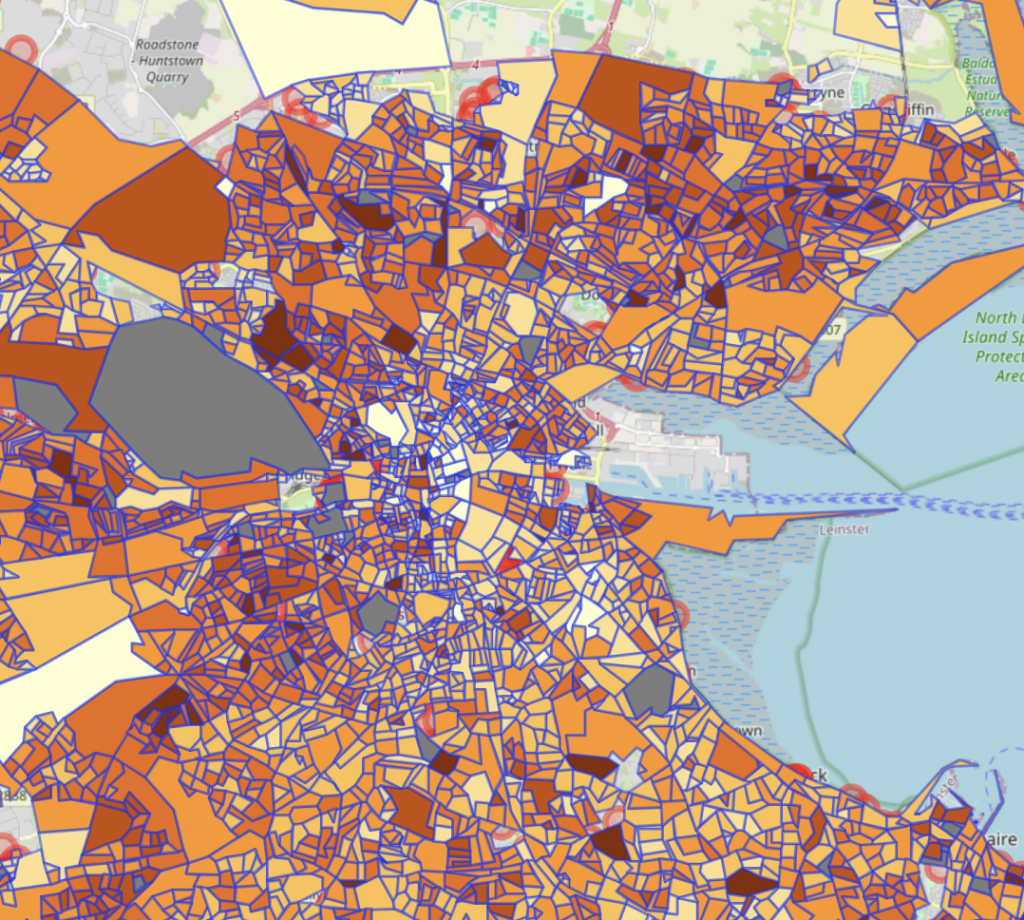
Certificate in Data Visualisation

10 Oct 2026
-
7 Nov 2026
Apply By
25 May 2026
Apply To
IADT
ECTS Points
10
Course Code
DL146
Duration
4 days (Saturdays)
Fees
€1,100


25 May 2026
IADT
10
DL146
4 days (Saturdays)
€1,100

Apply the principles of data visualisation to the analysis, design and communication of information in order to provide insights, clarity and meaning.
The aim of data visualisation is to effectively communicate information through a graphical means. This course aims to provide an understanding of the theory underpinning the field of data visualisation and to provide an introduction to the practicalities of creating effective graphical representations of data.
The course is suitable for individuals involved in the collection, analysis or interpretation of data, as well as for those responsible for the communication of data to a range of audiences.
The course will use the data visualization application Tableau. In addition, the open source software environment R together with a number of its data visualization libraries including ggplot2, Plotly and the mapping library Leaflet will be used. No prior experience with Tableau or R will be assumed.
On successful completion of this course, you will be able to:
1. Identify and critically appraise the history of data visualisation, the work of key practitioners and the emerging themes and critical debates relating to a data-driven society.
2. Apply the grammar of graphics and appreciate its role in the design of appropriate visuals.
3. Create graphics that visualise data in one, two and higher dimensions using proprietary and open source software tools.
4. Explore the emerging role of geospatial analysis in data analysis and develop interactive map-based visualisations.
5. Appreciate the role of statistical reasoning in data analysis and develop surveillance models for visualising data collected over time.
This course is intended for students who:
• have successfully completed a primary degree at level 8 and are interested in learning more about the field of Data Visualisation, and/or
• may be working in a related field related to data science, information design or graphic design, and/or
• want to retrain or upskill in order to start a career the field of Data Visualisation.
Students may come from a range of backgrounds, with varying levels of prior design experience (e.g., computing, engineering, technology, business, marketing, design, creative arts, psychology, etc. graduates) for whom data visualisation is a key area of interest.
Topics covered in this course include:
• The grammar of graphics
• Visualising data in one, two and higher dimensions.
• Geospatial visualisation
• Interactive visualisation
• Dashboard design and development
• Data visualisation using open source software e.g., R.
• Review of key concepts associated with statistical reasoning
• Creating surveillance models based on data collected over time
• Publishing content using an open source framework.
You will be required to complete a project where you will have to create static and interactive visualisations for a range of data configurations.
Data sets may include financial, manufacturing, transport, and tourism. Project outputs will include a written report containing analysis, observations and commentary.
There are no written examinations in this course.
Students should have access to a computer with a standard specification.
The application Tableau will be provided to students.
The course will be delivered on campus over 4 days (Saturdays) from 10am to 4pm:
An undergraduate qualification of 2nd Class Honours or higher at Honours Degree Level.
Those without this qualification may be considered provided they can demonstrate Honours Degree equivalence, which can be verified through the RPL (recognition of prior learning) process. Typically, RPL candidates should have professional experience of 2-3 years in Data Visualisation, Information Design, or a related field.
IADT operates on a rolling admissions basis. This means that applications are reviewed as and when they are received.
Should you apply for a course that is already at capacity, our admissions team will have established a waiting list to accommodate such situations. In the event that a spot becomes available due to enrolment changes, we will work diligently to offer that spot to waitlisted applicants.
Course fees are €1,100.
Please email any queries to microcreds@iadt.ie
“The Creative Futures Academy arrived at an ideal time for me. I had just finished a four-year honours degree, for which I was still paying. Covid-19 lockdowns were in place. I could not possibly have started taking a Master’s degree. I saw a LinkedIn post about applying for short courses on the IADT website. As I have qualified in multimedia journalism, the Data Visualisation Certificate seemed ideal – held online over weekends in two semesters. The time commitment was perfect.
I have learned what standard is expected on a Master’s course, while gaining ten credits which I can put towards a degree in future. I am much more likely to take another degree, having started on the journey. This is an excellent way to gain specialist creative skills, which can be used alone or lead into further studies. The qualification looks good on a CV, enhancing my technical capabilities, and has many practical applications in website, business or research work. I can highly recommend the Creative Futures Academy.”
Clare O’Beara, 2022 graduate
‘This short course thought the base knowledge of Tableau and R, a skill that I have been practicing since enrolling on the course in September. If you’re looking to upskill in the creative sector, I’d 100% recommend taking a look at the CFA courses!’
Luke McLeod, 2024 graduate
I’d highly recommend this course for anyone interested in learning hard data visualisation skills in a collaborative, friendly environment, surrounded by students from various backgrounds – some with experience and others without. You’ll learn hard skills that stand out on your resume and gain confidence quickly.”
Seana Davis, 2025 graduate